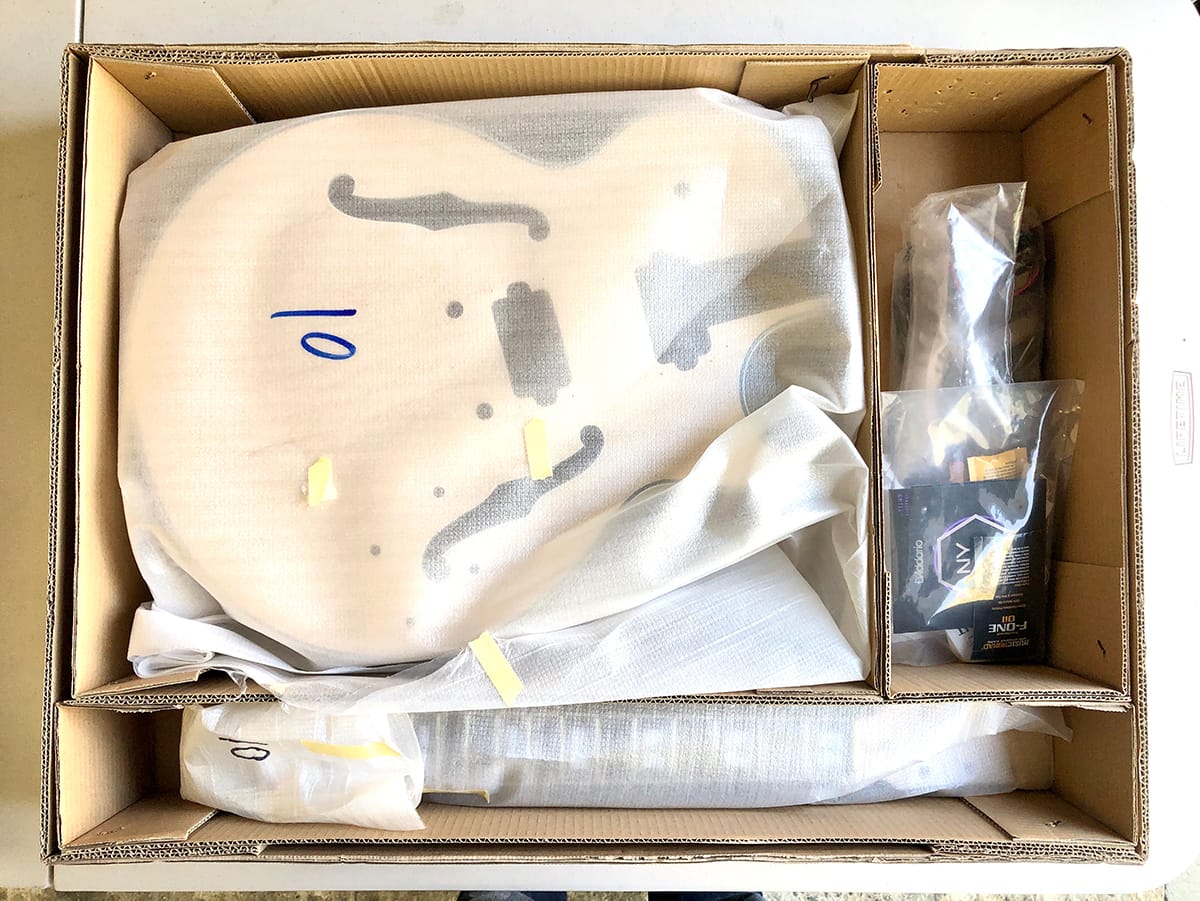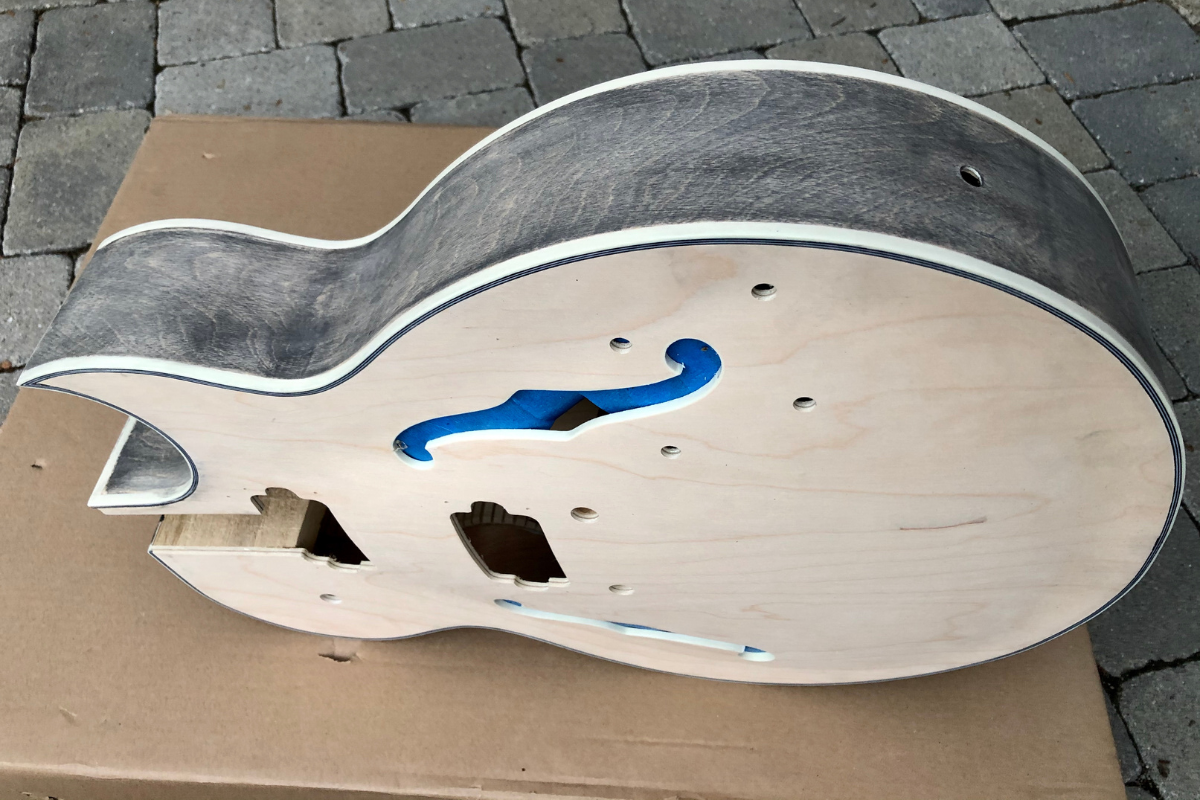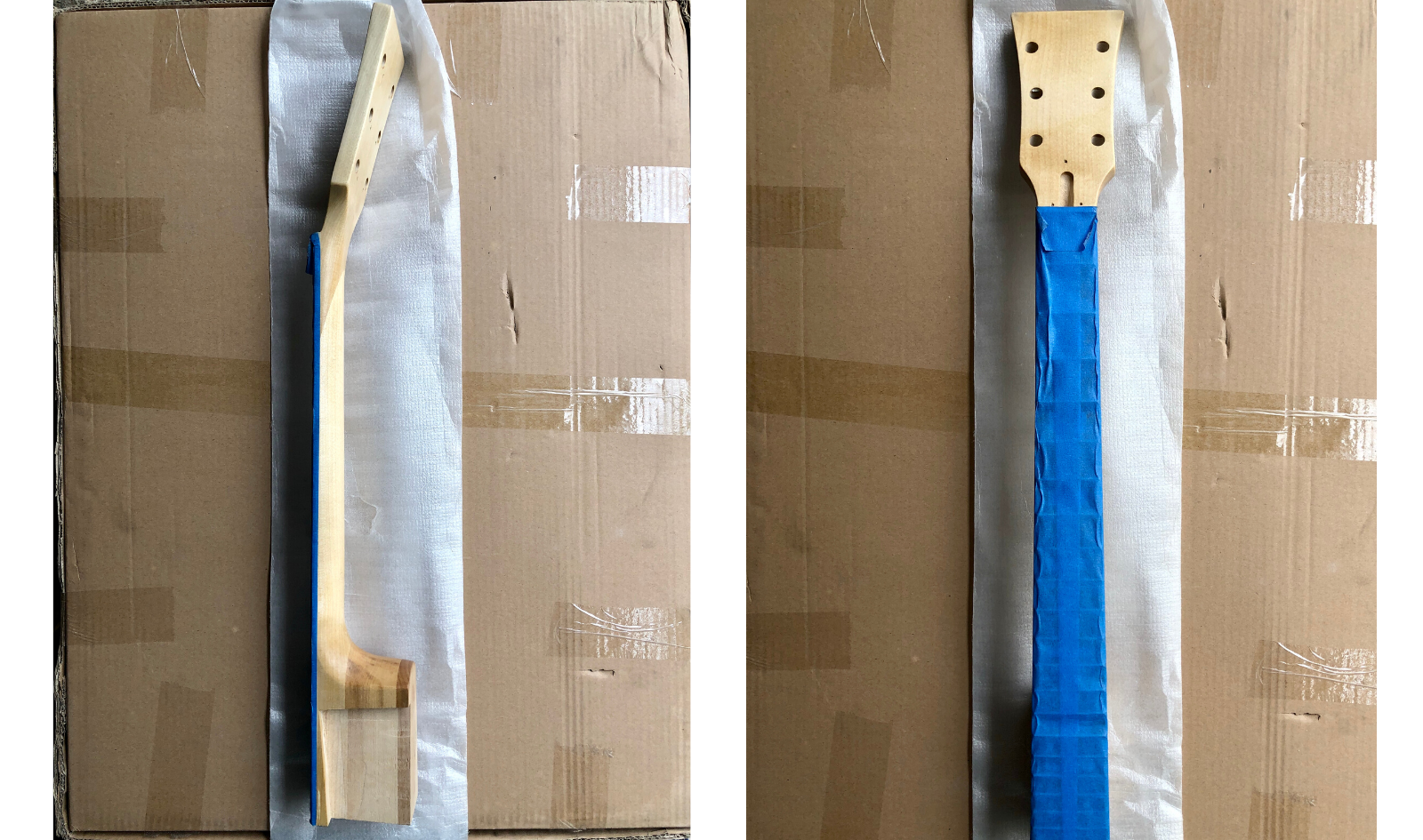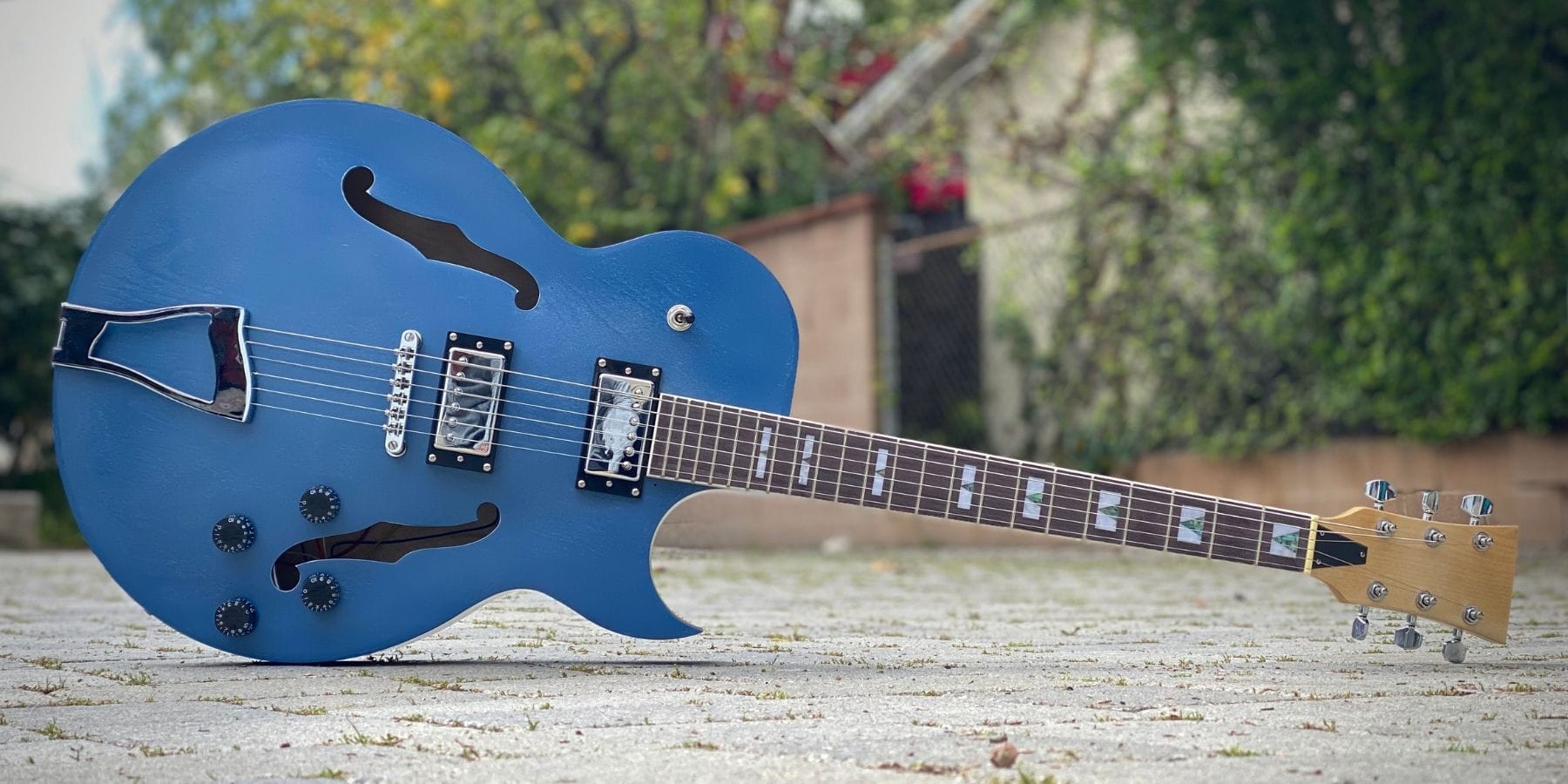7 Reasons Your DIY Guitar Kit Will Be Terrible
I finally finished the 175 guitar build. I learned some lessons...the hard way. Spoiler alert: Yes, I learned a lot from doing it and am glad that I did. But, no, I will not build another one.
I finally finished the 175 guitar build. I learned some lessons...the hard way. Spoiler alert: Yes, I learned a lot from doing it and am glad that I did. But, no, I will not build another one. I will simply appreciate luthiers so much more for the hard work they do, and gladly hand them my money next time I want a guitar.
I started building this kit several months ago with great optimism, as you can see in my initial article where I describe getting started.
I pressed on, even after initial headwinds, trying to make a decent job of the lacquer and paint job on the guitar, as I describe in my followup article.

But I confess, as I progressed through the project, my over-riding feeling was of just trying to Get. It. Done! I wanted to it finished so I could actually go play guitar!
So, in order to distill the lessons I learned into some sort of summary, to close off my half-finished DIY Guitar series, and to give you a taste of what you're in for if you build your own guitar, I will try to pass on what wisdom I have. Enjoy.
7 Reasons Your DIY Guitar Kit Will Be Terrible
1. So Many Skillsets Required
There are a lot of skillsets required to build a guitar. Woodworking, electronics, neck setup and configuration... this is not a job to do in a few hours. Unless you came into this as an accomplished carpenter, electrical engineer, and guitar tech, you are going to have to spend lots of time researching things. Pro Tip: it's not the general concepts that get you, it's all those little details.
2. Finishing (as in the woodworking term)

Finishing (AKA sanding, lacquering, and polishing) the guitar body is a lot of work. And it's a certain set of skills that take time to do well - sanding, spraying, mixing color, polishing. If you think you're going to get that glassy, thick, perfect finish on your first DIY guitar then I'm here to be honest with you - you won't.
3. You get what you pay for

When you look kits online they always come with basic hardware. This hardware is always cheaply made. If you want to have a fighting chance of making your guitar actually sound good, you need to upgrade to the nicer hardware options (pickups are the main thing I'm talking about here, but it applies to all of it).
4. Wiring is a pain in the neck
Reading the diagrams is difficult and you will probably spend several hours in forums trying to fill in the gaps. "Where do I ground the cable pins to?" "Do I solder the tone capacitor wires directly to the pot? or use jumper wires?" Electronics are a world unto themselves. If you are totally unfamiliar with soldering, wiring diagrams, or electronic concepts, then you should practice. A lot.
5. Speaking of which, that guitar neck won't feel great either

The frets will feel too high - you'll need to sand them down. The neck will probably not fit 100% perfect with the body - you'll need to spend time doing fine sanding to make it fit perfect, or just live with it. The joint at the body where the pickups sit is probably going to have some gaps and weird alignment. And it's truly hard to get that slinky, smooth feeling on the back of the neck where your thumb goes.
6. Finding a good workspace is challenging

You need good ventilation for the lacquer and finishes. And you need a bench with good lighting and lots of space to do the electronics. And you need to be able to leave the guitar there for a while to dry during the initial stages. Speaking of which...
7. And, finally...it takes forever
The schedule for finishing (again, by 'finishing', I mean the sanding, lacquering, and polishing stage) that I looked at took weeks. And that assumed that you were able to work on it every day or two. True, I admit it only took 15min to a half hour at a time on certain days (say, to spray a few more coats of lacquer), but if you're traveling for work, or holiday, or anything else gets in the way, then the whole schedule gets pushed back. My first DIY took 4 months. Seriously.
Conclusions?
1. Love your luthier!
The women and men who make guitars deserve appreciation. Their patient, highly skilled, hard work yield beautiful instruments that you and I can make music on. They deserve the money you pay them for making your guitar.
2. Build a DIY guitar. Once.
I learned a LOT about how guitars in this process - how the wiring of a guitar works, how the finish process is done, and about guitar construction in general. The next time I go to buy a guitar, I will have a much more discerning eye for detecting quality and for knowing what I want from a guitar. The empowerment and context that you get as a guitarist is worth doing a project like this.

OK, final thoughts, for real.
Seth Godin is a business book author (now stay with me, I promise this is relevant...) who talks about "the dip". "The Dip" is not a sandwich (well, actually it is, but that's not what we're talking about here...). The Dip is the valley that we all stumble into when we start to learn a new skill, a new job, a new relationship and begin to wonder, "is all this work really worth it?".
In most endeavors, things are usually rosy at first. And if we persist long enough, we know we will overcome and have the fruits of our hard work. But that middle bit...that's the hard part. That's when you're doing the work, but haven't seen the promised results yet. When you're putting in effort but not sure if it's paying off.
Godin says that you should make a decision early in The Dip: decide if you're willing to work all the way through the dip. Are you willing to work hard for quite a while with no results in order to reach the finish line?
If yes, then great! Put on your big boy pants and get ready to work really hard for a while before you start to see results.
But if no, then also great! By realizing this early, you've quit at the most efficient time possible - before you've wasted time and effort trying to slog through that middle bit to no avail.
Can you guess my decision on this one?

